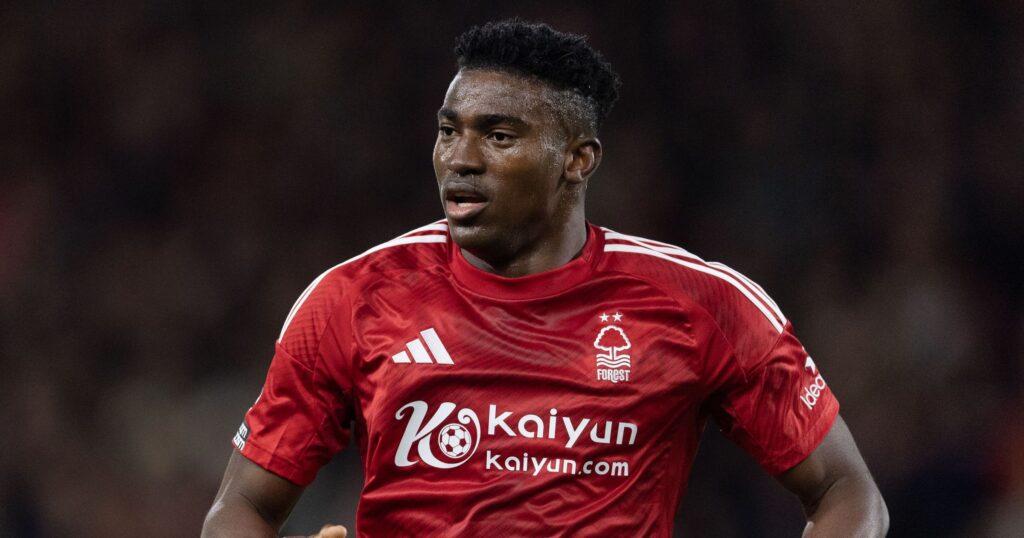Nottingham Forest striker Taiwo Awoniyi is currently in an induced coma following urgent surgery for an abdominal injury sustained during the recent 2-2 Premier League draw against Leicester City. This unfortunate incident unfolded as the talented Nigerian international collided forcefully with the post while attempting to secure a late winning goal for his team. The severity of the injury has cast a spotlight on the protocols in place regarding player safety and medical intervention during matches.
Initially, Awoniyi received extended on-field treatment after the collision. However, due to Nottingham Forest having already used their three allotted substitutions, he was compelled to continue playing despite his evident distress. His condition worsened after the match, prompting his transfer to the hospital, where he underwent surgery on a subsequent Monday. This sequence of events has raised eyebrows and sparked considerable discussion about player welfare in high-stakes situations.
Amidst growing concerns and outrage, a particular controversy has arisen regarding the officiating during the match. Awoniyi was positioned offside in the play leading to his collision, yet the assistant referee did not flag the offside until after the ball had gone dead. This decision adheres to the officiating guidelines, which instruct assistants to refrain from raising their flags until the sequence of play concludes. Nonetheless, the timing of the call has been criticized, especially in light of the ensuing injury that has left one of their key players in a precarious state.
In the aftermath of the incident, Evangelos Marinakis, the owner of Nottingham Forest, was seen on the pitch shortly after the final whistle, engaged in discussions with the team’s manager, Nuno Espirito Santo. The situation took a turn when the club’s medical team came under fire for allowing Awoniyi to remain on the field following his injury. A club statement expressed a sense of “shared frustration,” asserting that the medical professionals should have intervened sooner to prevent the situation from escalating.
Furthermore, the official statement emphasized that there was no confrontation involving either Santo or the medical staff, whether on the field or inside the stadium. The club urged former coaches, players, and other influential figures within the sport to exercise caution and refrain from hastily forming judgments or spreading misinformation on social media, particularly when the complete context of the incident is not fully understood. Forest characterized the backlash surrounding the injury as “baseless and ill-informed outrage.”
The Nottingham Forest organization underscored its commitment to prioritize the mental and physical welfare of its players and coaching staff, firmly asserting that this imperative eclipses media narratives, hasty conclusions, and indeed any semblance of self-promotion. This incident has prompted a wider reflection across the football community regarding the treatment of players and the responsibilities of medical personnel during games. The welfare of athletes should always take precedence, ensuring that their health is not compromised for the sake of maintaining the integrity of the game.
As the football world continues to monitor Awoniyi’s condition, Nottingham Forest remains steadfast in its commitment to its players’ well-being. The situation acts as a crucial reminder of the critical importance of player safety measures, medical protocols, and robust officiating standards within the sport. It is anticipated that discussions regarding these protocols may gain momentum in the wake of this incident, potentially leading to improvements and greater safeguards for athletes on the field. For now, all eyes remain on Taiwo Awoniyi, with hopes for his swift recovery and return to the pitch.



